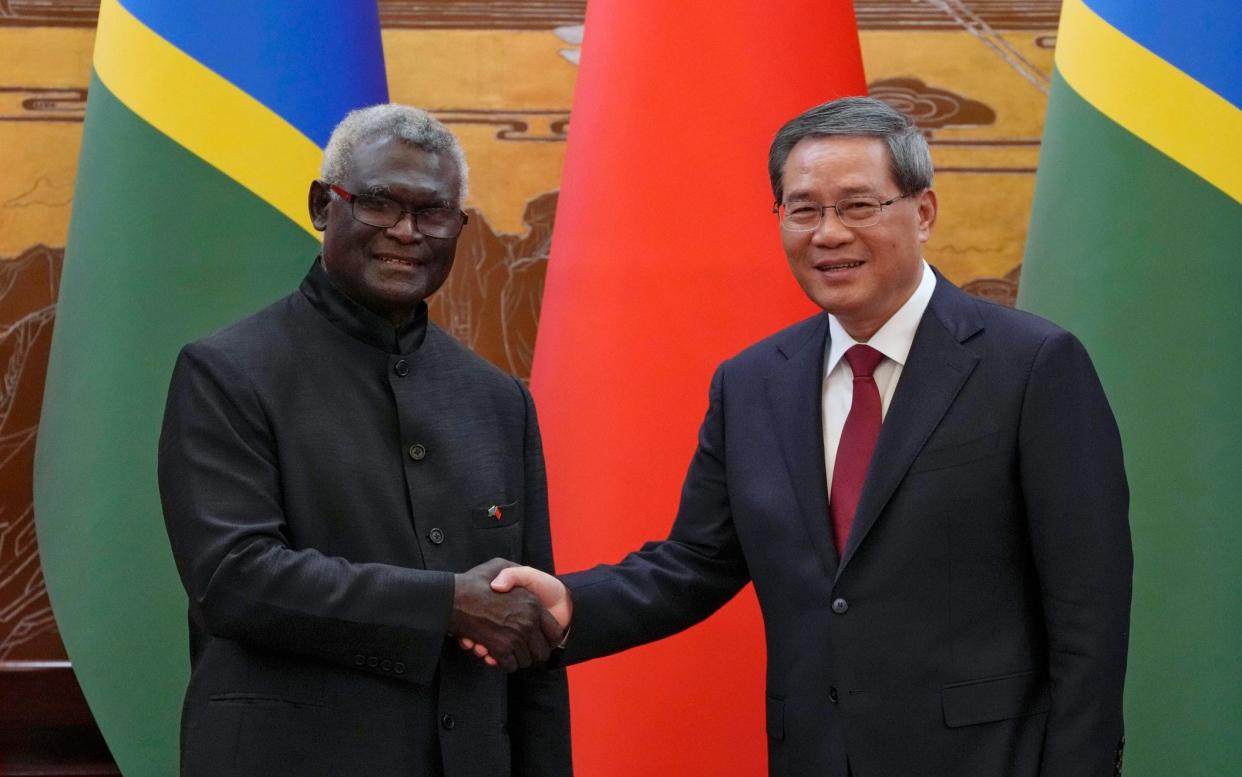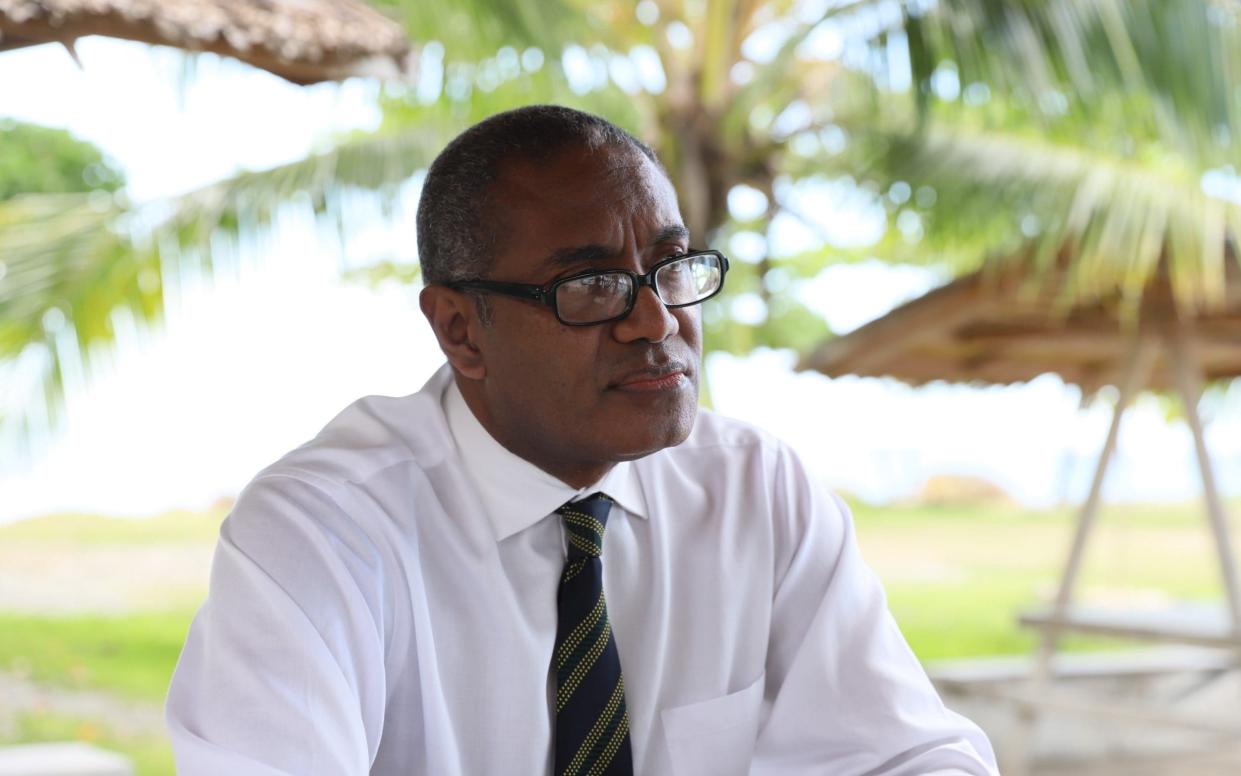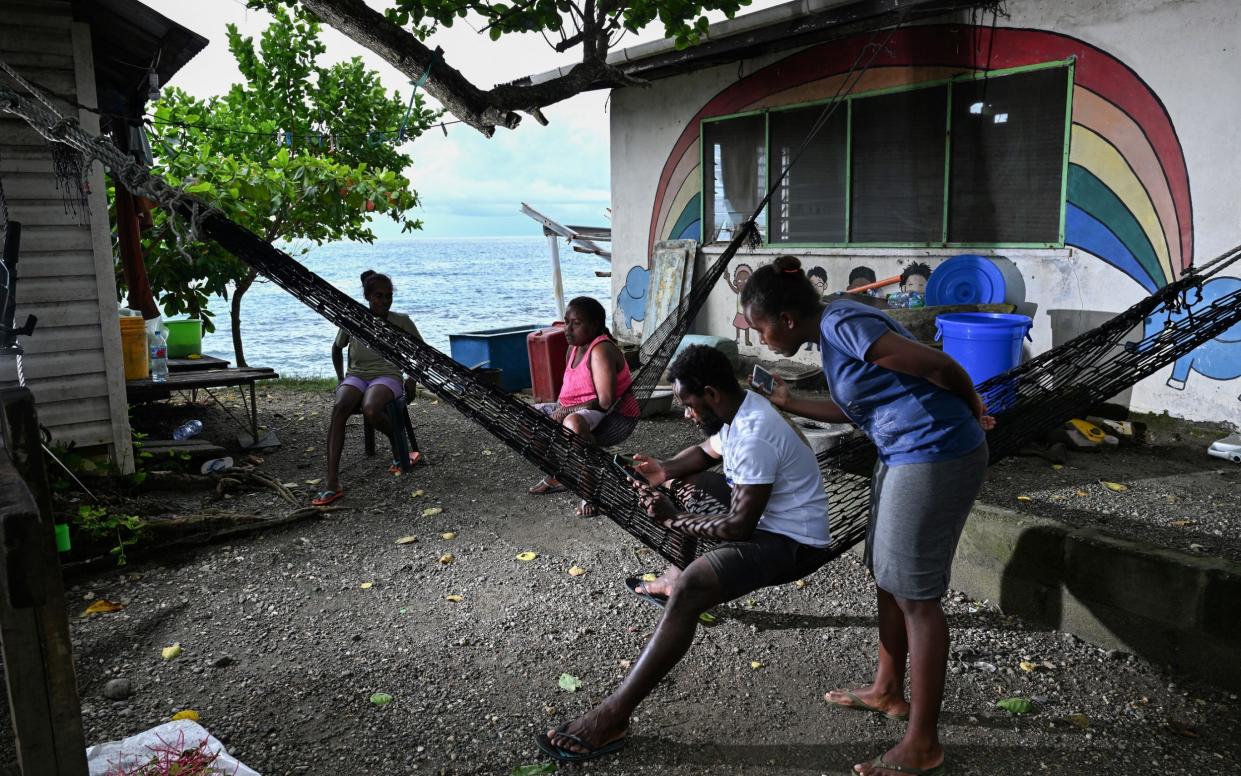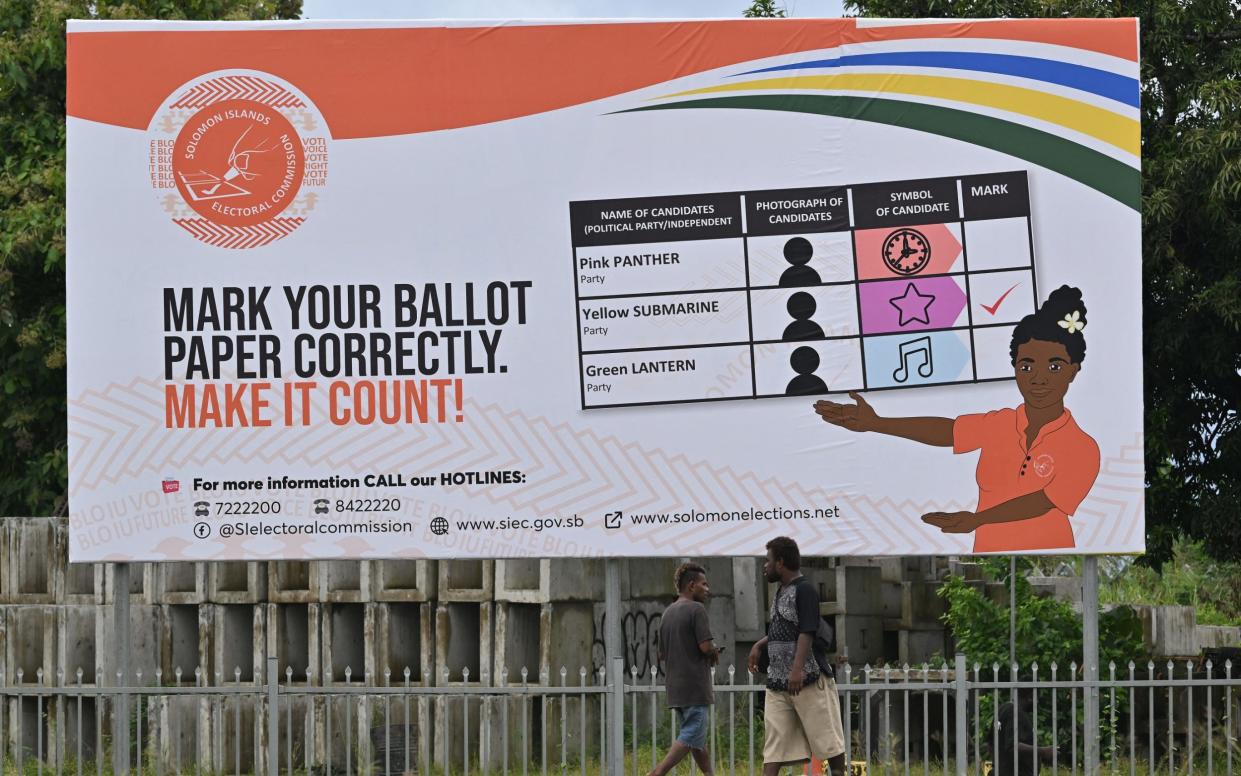‘West v China’ as island nation holds vote that could shape region

The Solomon Islands goes to the polls on Wednesday in an election that has been framed as the “West versus China” because of the country’s key strategic location in the South Pacific.
Manasseh Sogavare, the country’s prime minister, signed a secretive security pact with Beijing in 2022 that stoked fears of China gaining a naval foothold on Australia’s doorstep.
He is now seeking an unprecedented consecutive second term that would further deepen ties with China, in what his opponents have called a “high stakes” election for the future of the island nation of 700,000 people.
Peter Kenilorea, an opposition leader and a potential contender for the premiership, said: “He [Sogavare] has framed this election as the West versus China.
“The outcome will be a reflection of where people stand on some of these issues.”

Mr Kenilorea, a former UN official and son of the first Solomons’ prime minister, is pledging a boost in cooperation on development issues with trusted international partners such as the UK, US, Australia, Japan and Taiwan.
He also wants to bring in foreign and security policies that would be unpopular in Beijing.
A win for the incumbent leader would just draw the country further into Beijing’s sphere of influence, said Mr Kenilorea.
Mr Sogavare, a mercurial 69 year old, controversially switched the country’s diplomatic allegiance from Taiwan to Beijing in 2019 and has since allowed a flood of Chinese aid and investment to flow into the country.
His government’s growing ties with Beijing have unsettled Washington, Canberra and their allies, who are wary of China’s expanding military and economic footprint across the Indo-Pacific.
The final document of a security deal signed with China has never been made public.
A leaked version referred to Chinese “ship visits” and invoked Beijing’s right to defend its citizens and projects in the Solomons. The draft pointed to China’s involvement in maintaining civic order through the deployment of “armed police, military personnel and other law enforcement and armed forces”.
Mr Kenilorea and his United Party have pledged to abolish the security pact.
“We don’t see that particular treaty as beneficial to the Solomon Islands. We don’t have any natural enemies,” he said. “I think it just massively raises tensions, and geopolitics in our space so we need to focus on the real issues – health and education.”
Mr Kenilorea, 51, acknowledged China’s influence had overshadowed the election campaign and was a major issue for voters.
“We can be put on the map for better reasons than this geopolitical tussle,” he said.

Daniel Suidani, the former provincial governor, was a strong critic of China and the decision to drop diplomatic support for Taiwan, before he was abruptly ousted in a motion of no confidence in 2023 while he and his supporters were absent from parliament.
In an interview with AFP on Monday, Mr Suidani called China’s growing hold over the Pacific nation “alarming”, accusing the Chinese Communist Party of working behind the scenes to help keep pro-Beijing members in parliament.
China has paid tens of millions of dollars into a discretionary development fund used by the island’s politicians, according to Australian research.
Critics allege this “constituency development fund” is being used to curry favour with key political figures.
China’s foreign ministry denied on Monday that it was interfering in the country’s elections.
Lin Jian, a spokesman for the ministry, said: “China has always pursued the principle of non-interference in internal affairs and supports the people of the Solomon Islands in independently selecting a development path that suits their own national conditions.”
Disinformation campaign
Chinese and Russian state media have in recent days alleged that it is the United States that is trying to influence the Solomons’ elections, claiming Washington was planning an “electoral coup”.
Ann Marie Yastishock, the US ambassador to the Solomons, Papua New Guinea and Fiji, denounced the “over disinformation campaign” as “categorically false” and “baseless accusations”.
“These misleading and false claims from questionable sources and outlets should only be perceived as disinformation and an attempt to harm our longstanding partnership with Solomon Islands and friendship between our people,” she said in a statement on Tuesday.
Suspicions remain that China will be backing more than one pro-Beijing candidate for the top job in order to cement its influence.
Mr Kenilorea accused China of “blatant interference” by signing a new cooperation deal in early April between Malaita province and East China’s Jiangsu, with a view to pushing forward with development projects. “The timing is suspicious and questionable,” he said. Malaita has historically been more sceptical towards Beijing’s intentions.
He also claims he has been targeted by Chinese disinformation campaigns that have gone as far as publishing fake brain scans to suggest he was sick.
“I have been targeted with some really strange efforts to brand me as mentally ill. An email has been sent around to a few journalists and friends..it says click here for a report to see the brain scan of Peter Kenilorea that shows that he is ill,” he said.

The 50 politicians elected in Wednesday’s poll will decide in the following days who should be awarded the premiership.
Mr Kenilorea said he was not “hunting” for the prime minister’s position but would not reject the chance to take it on.
“If that opportunity arises … in our culture, if someone gives you a gift you don’t refuse it,” he said.
Australia’s defence ministry has confirmed it will support the poll with a £12.9 million logistics investment package, election observers and additional police and defence personnel.
It said the Australian Federal Police and Australian Defence Force had been invited by the Solomons’ government to help provide security and would work alongside partners from New Zealand, Fiji and Papua New Guinea.
Elections in the past have been followed by periods of unrest.
Richard Marles, Australia’s defence minister, said: “Australia has a long history of supporting democracy in the Pacific and will continue to work with our regional partners to support prosperity and security based on our shared values.”


